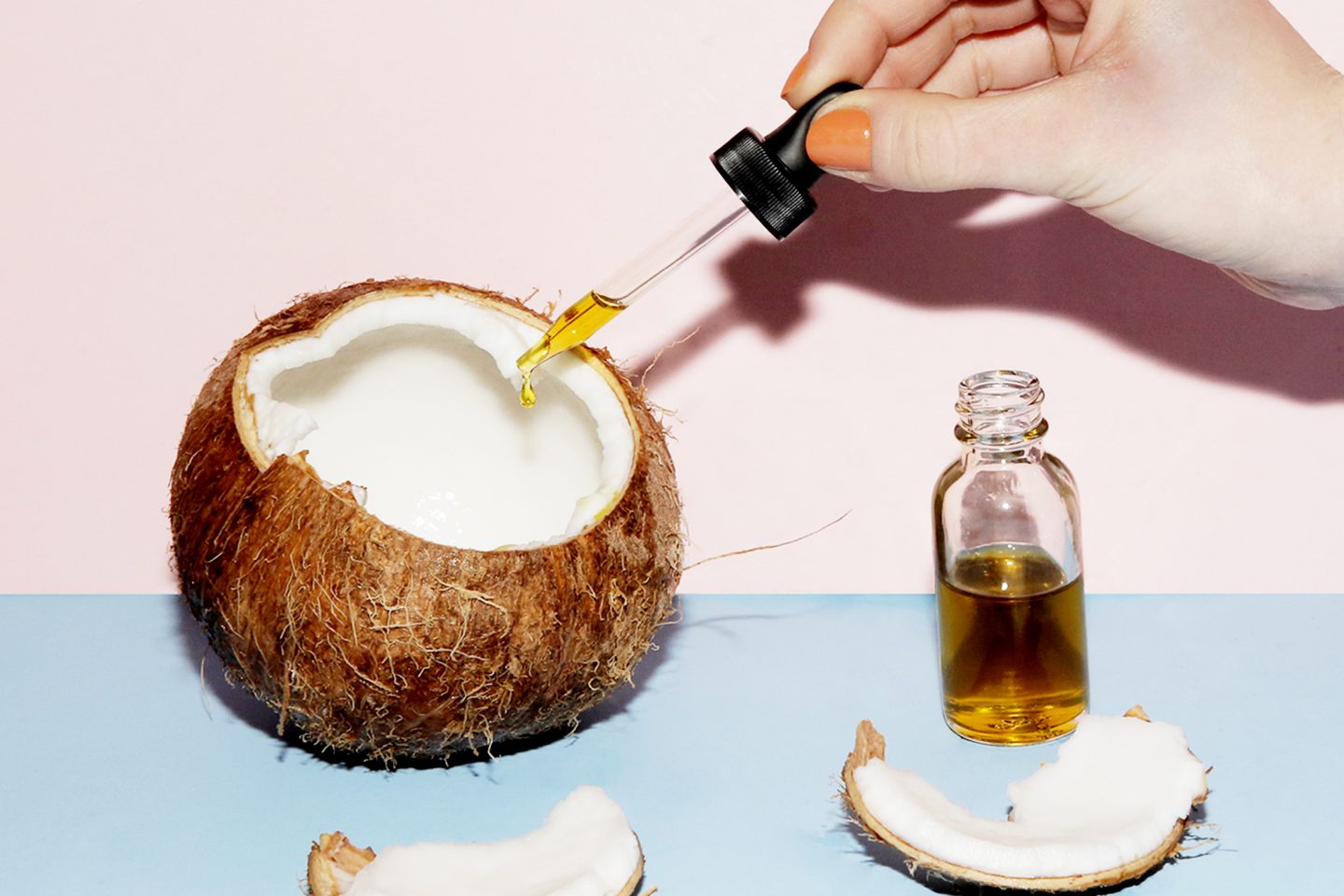There is still a huge hype around coconut oil, so it might be surprising to see a title like this. Altough I can ensure you that you are not a UFO if you are not quite satisfied with the results after using it on your skin.
If I type „how to use coconut oil” into google I instantly get 53,800 hits, and these are only the Hungarian articles. In addition to baking and cooking, coconut oil is proclaimed as the most amazing makeup remover, eye cream, body lotion, toothpaste (?), sunscreen (no waaay, forget about this please!!) and last but not least moisturizer and miraculous pimple-healer. Coconut oil or coconut butter, which is mainly consists of medium chain saturated fatty acids has excellent properties such as:
- antibacterial
- antivirus and antifungal
- wound healing
What is coconut oil?
It is an edible oil extracted from the meat of mature coconuts harvested from the coconut palm. Coconut oil melts at 24 degrees C (76 degrees F) becoming a clear liquid that looks just like any other vegetable oil. I could write a book about its health benefits, but I won’t as the Internet is full of articles on this. However there are only a few about its drawbacks e.g. people with dry, sensitive and acne-prone skin can be quite disappointed after using it.

COCONUT OIL MAY CAUSE ACNE
The comedogenic index of coconut oil (how much it clogs pores or causes acne) is 4 on a scale of 0 to 5 (0: does not cause acne, 5: most likely causes acne). So coconut oil can definitely break you out. Some people don’t have any issues with it whatsoever, but many others can experience unwanted pimples or blackheads (even on their bodies).
Lauric acid found in coconut oil (which is also a wonderful immune enhancer found in breast milk) has antibacterial properties, but can also clog pores . In 2009, a research was carried out to investigate the effects of lauric acid on acne, but it clearly did not prove that it would be good for them.
The proof of the pudding is in the eating – they say. So before slathering extra virgin coconut oil all over your face, and being terribly upset with your new little bumpy friends (aka pimples), first do a patch test (try to apply just a little bit on a small area of your skin) and see what the result is. This also applies to all the facial and body care products available on the market, which contain coconut oil.
If you’re prone to breakouts, always double check the ingredient list! In the top 5 places of the INCI (International Nomenclature of Cosmetic Ingredients) there should not be any coconut oil or coconut oil derivatives. Look for Coconut Oil, Cocos Nucifera Oil, Sodium Cocoate, Potassium Cocoate or Cocamidopropyl Hydroxysultaine.
Tip: If this is the case with you, you can still use coconut oil on your hair for example to get rid of split ends. You could also enjoy it internally! It has many health benefits which you should definately not give up on. Even though I really wanted to belive in it, it hasn’t become my favourite beauty staple either.
COCONUT OIL CAN DRY OUT THE SKIN
Despite the fact that coconut oil is a type of oil that is absorbed by the skin, some may be surprised to find that their skin is rather dry and flaky than hydrated after using it. One explanation is that if you use oil, your body gets the sign that it is hydrated enough and therefore it will reduce the production of sebum. This is not 100%, but there are people with extreme dry skin who experience this.
There are heaps of articles about how coconut oil is so exceptionally rich in vitamins and antioxidants, even though for example its content of vitamin E is negligible: only 0,11 mg in 100 grams. While the same amount of argan oil contains 60-90 mg (not to mention its comedogenic index being 0). Likewise, there are oils with much higher antioxidant content as well (such as tamanu), so you should always look around before you just simply fall for the media.
COCONUT OIL CAN CAUSE ALLERGIES
Yep, unfortunately this might happen as well. Those who are allergic to hazelnuts are usually also highly susceptible to coconut. Of course, this is not always the case, but better to be safe than sorry. If you are allergic to coconut oil the symtoms may include nausea, vomiting, diarrhea, itchiness, rashes, difficulty breathing and swallowing. And if you use it externally and get an allergic reaction you will most probably face some kind of itchy rash and/or blistering that may occur within 1 day.
How to choose?
You are more than happy with coconut oil so you don’t really understand what I am talking about? Great, good for you! But be mindful of this: always, always aim for 100% pure, unrefined, unbleached, organic coconut oil. Why? Because refining kills the valuable amino acids and vitamins in it. By the way you can easily tell if it’s refined cause it is missing that nice coconutty smell and taste.
What do you think of coconut oil? Do you like it/use it?
Much love,
Peonilla xx
